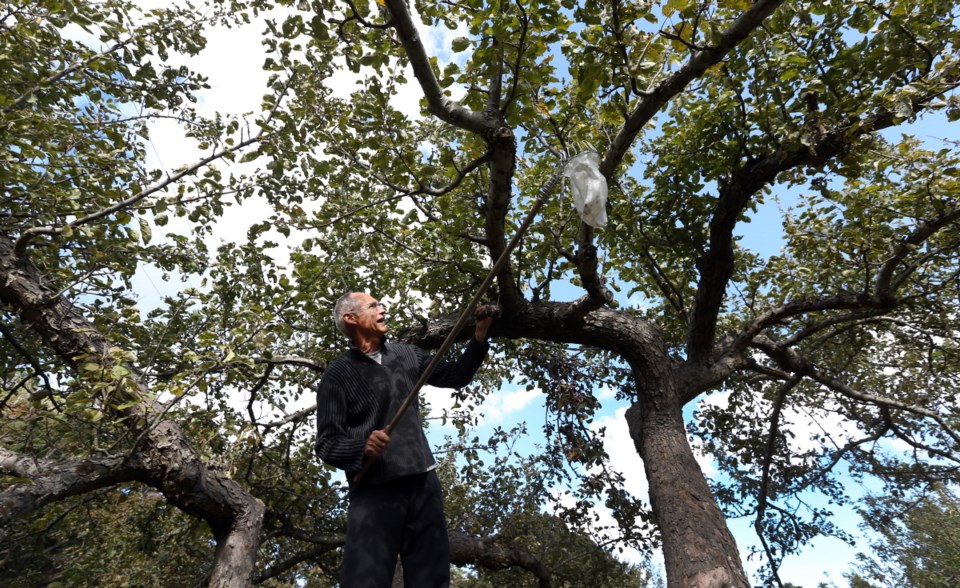Volunteers in Metchosin are working to ensure that neglected trees in one of the oldest orchards on Vancouver Island soon thrive again.
The federal government has agreed to let members of Metchosin Pomological Society preserve 19 trees in the historic orchard that was once owned by pioneer Robert Weir. The 160-year-old, dilapidated orchard is now part of federal property near William Head correctional facility.
The apple enthusiasts plan to graft old varieties onto new root stock and replace dying trees with new ones, said the society’s president Dan O’Connell.
“It’s the original orchard and it’s a shame to see these magnificent trees not be tended,” O’Connell said at municipality’s recent annual apple festival.
The old orchard is “kind of an exquisite place,” he said. It’s not uncommon for locals to pick a few apples, he added.
The first varieties planted in the orchard were tailored for the times, O’Connell said. “They had to be keepers that would last to the spring, and they had to have qualities for cooking, eating and making cider.”
Three or four of the trees bear king apples, which are hardy and versatile, he said.
Many old heritage varieties aren’t available on the market anymore, said Linda Petite, head gardener at the Horticulture Centre of the Pacific.
“They’re lost in history if we don’t save old orchards,” she said.
It’s common that old cultivated plants die off if they’re not saved, said Petite.
The fact these trees are producing fruit after all this time shows they’re vigorous plants.
“I know of a couple places where there are orchards that are 50 years old and have been neglected for 30 years, and they still produce lovely fruit,” said Petite.
“I think it’s definitely worthwhile to keep the old varieties if they can.”
Some of these old apple varieties may have fallen out of favour now but they’ve stood the test of time. Apples have spread around the world by appealing to bears and horses that have spread seeds to new areas, O’Connell said.
Derek Wulff, another member of the society, said it’s important to retain biodiversity in apple stocks.
“It’s not that hard to cross-pollinate a couple trees and make a new brand but some of the nuanced flavours of our old heritage trees are just spectacular,” Wulff said.
The old trees, which have been neglected for decades, have natural resistance to apple diseases like scab.
“Newer varieties are a little bit precious — they need attention,” O’Connell said.
Wulff added that newer varieties like Galas taste the same year-round.
“Any of the Gravenstein variety of apples change as the season goes on,” Wulff said.



